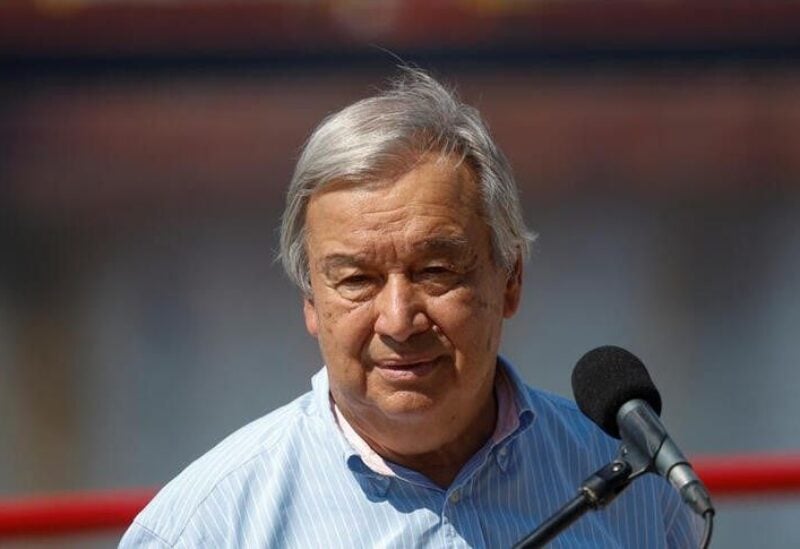
UN Secretary-General Antonio Guterres attends a news briefing in the sea port in Odesa after restarting grain export, as Russia's attack on Ukraine continues, Ukraine August 19, 2022. REUTERS/Valentyn Ogirenko
On Wednesday, United Nations Secretary-General Antonio Guterres asked India’s assistance in mobilizing G20 nations to assist poor countries plagued with debt, with three of India’s neighbors already requesting IMF loans as their economies suffer.
From December 1, India will take up the G20 chairmanship from Indonesia for a year. In recent months, India’s neighbors Sri Lanka, Pakistan, and Bangladesh have requested IMF loans as rising oil costs hinder efforts to recover from the economic devastation caused by the COVID-19 epidemic.
“I depend on India’s help in mobilizing G20 countries around debt relief,” Guterres told students and professors at Mumbai’s Indian Institute of Technology. “Many developing nations are in or on the verge of debt difficulty, necessitating global action, including the expansion and extension of the G20 Debt Service Suspension Initiative.”
The plan, which was established in May 2020 during the epidemic, allowed almost 50 nations to delay $12.9 billion in debt-service payments until the end of last year.
Guterres said climate change was “already a grave threat” to India’s economy, agriculture and food sector, and to the health, lives and livelihoods of hundreds of millions of people.
“Record-breaking heat waves, droughts and floods in parts of India are causing havoc already,” he said. “These are a foretaste of what is to come without much greater global climate action.”
He said G20 countries were responsible for 80% of global emissions and must take the lead in cutting those. Rich countries should also financially help developing ones do so, he said.
“I have called for coalitions of support around countries including India, with ambitious plans to accelerate the deployment of renewables,” said Guterres, who meets Indian Prime Minister Narendra Modi and Foreign Minister S. Jaishankar on Thursday.
Guterres also urged the country to condemn hate speech unequivocally, protect the rights and freedoms of journalists, human rights activists, students and academics, and ensure the independence of the judiciary